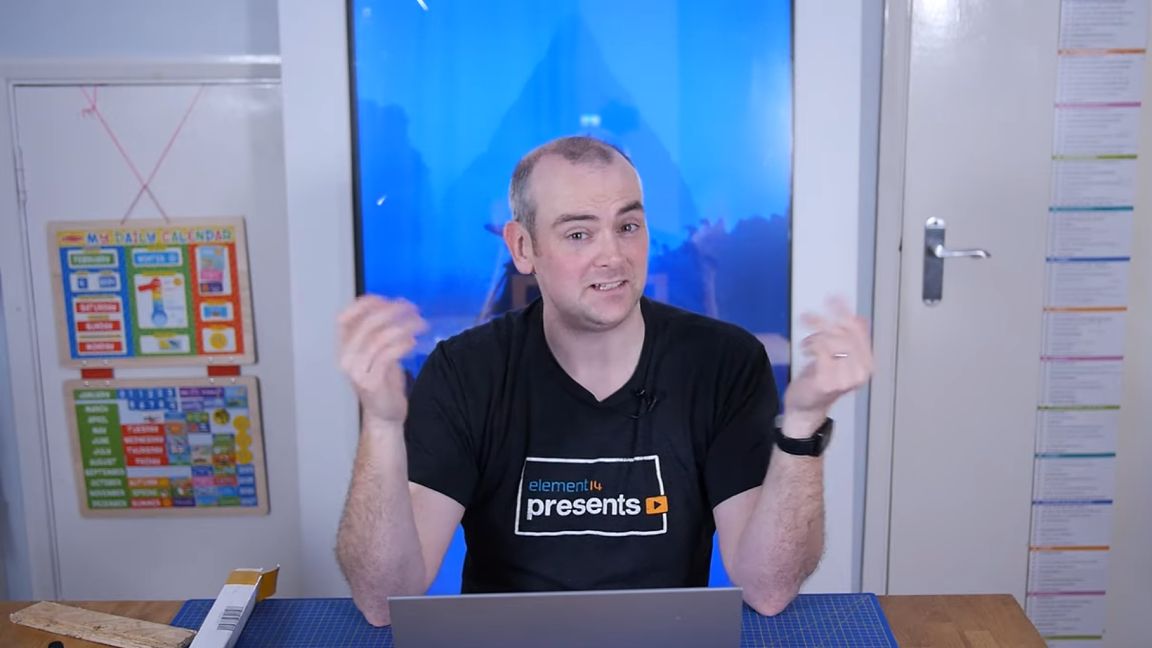
Magic mirrors have become well-known in the Raspberry Pi community as a go-to project for many new makers. As cool as they are, they're also widespread. However, we came across this magic mirror project put together by David from Element 14 and thought it was different and exciting enough to share. This magic mirror is massive, one of the biggest we've ever seen and doubles as a retro gaming platform.
Magic mirrors are fantastic despite being seen as a bit overdone. If you've not seen one before, it's basically a monitor behind a translucent mirror that makes useful information visible, such as weather, calendar updates, etc. In this case, David wanted to create a massive one that was much more interactive for his family.
According to David, the plan was to dual-boot the Raspberry Pi so it could function as much more than a source of information. One partition is intended to be dedicated to standard magic mirror functions, but the other can be used for anything. David wants his mirror to be used as a retro gaming platform, so he'll be loading up the extra partition with Emulation Station.
When we said this screen was significant, we meant it. David uses a 65-inch (well over five feet long diagonally) touchscreen as the monitor for the mirror. If the project was to create a magic mirror, you could quickly get away with using something simple like a Pi Zero. However, David wants this to double as a gaming system, so it makes sense that he chose to use a Raspberry Pi 5.
You have a lot of flexibility regarding what software you can use with a project like this. The standard Raspberry Pi OS is a great starting point for setting up the mirror. However, you can get creative with the other partition. David uses Emulation Station, but you could experiment with something like Lakka. David mentioned possibly tinkering with Android.
If you want to get a closer look at this Raspberry Pi project, check out the video shared on YouTube, and be sure to follow Element 14 for more fabulous creations.
Stay On the Cutting Edge: Get the Tom's Hardware Newsletter
Get Tom's Hardware's best news and in-depth reviews, straight to your inbox.

Ash Hill is a contributing writer for Tom's Hardware with a wealth of experience in the hobby electronics, 3D printing and PCs. She manages the Pi projects of the month and much of our daily Raspberry Pi reporting while also finding the best coupons and deals on all tech.